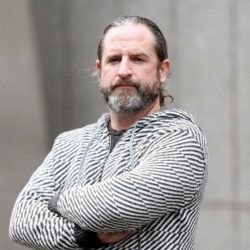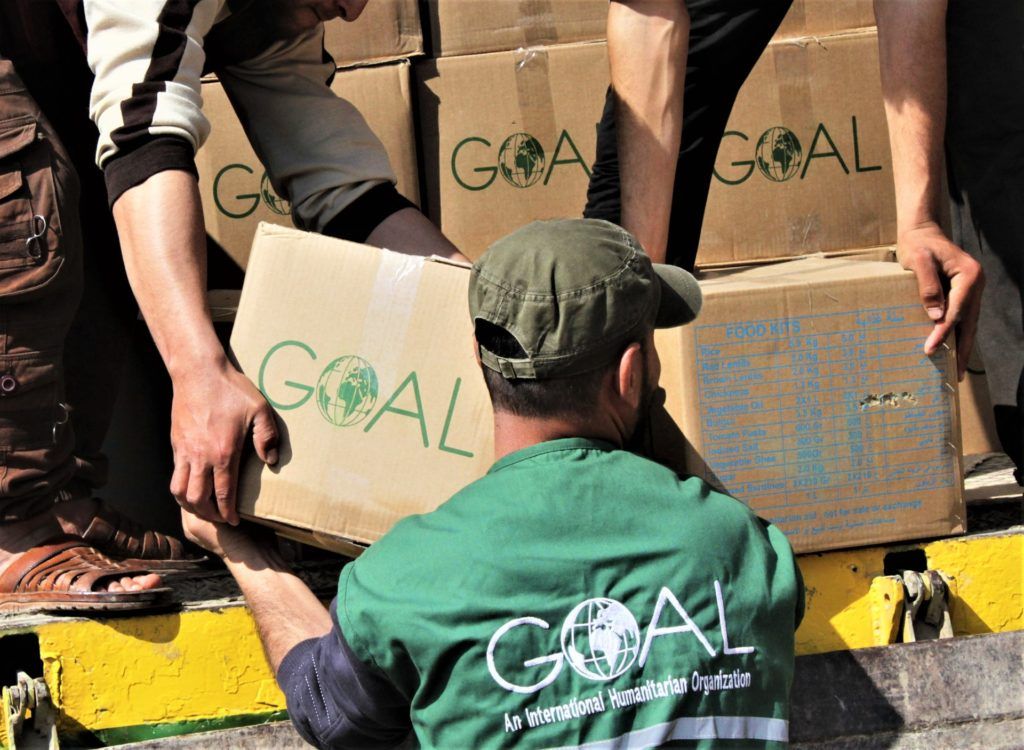 Blogs
Blogs
July 8, 2021 • 5 min read
By Derek O’Rourke, Middle East Security Advisor, GOAL
 Imagine if your neighbor was starving one of their children? Would you hand some food across the fence to stave off the child’s hunger? Would you think it a crime and report it to the police? Would you give the food directly to the parents to feed their starving child, a child they have already determined not to feed? Or would you mind your own business?
Imagine if your neighbor was starving one of their children? Would you hand some food across the fence to stave off the child’s hunger? Would you think it a crime and report it to the police? Would you give the food directly to the parents to feed their starving child, a child they have already determined not to feed? Or would you mind your own business?
If the child died of hunger, would you feel some responsibility for doing nothing?
A global responsibility
In times gone past, any such intervention might be considered interfering in someone else’s business, but today, we have systems to protect children’s rights, including against cruelty by their own parents. The child at risk would be taken into care, while the parents would face the legal consequences of their actions.
Similarly, if a government deliberately attempts the mass murder of some of their own people, there are a range of mechanisms in International Humanitarian Law and in Human Rights Law that, in theory, protect those people, and bring legal consequences down on that government. There is the Genocide Convention for example, and the International Criminal Court, and the Universal Declaration of Human Rights.
There is also the Responsibility to Protect (R2P), a global political commitment which was endorsed by all member states of the United Nations at the 2005 World Summit in order to address its four key concerns to prevent genocide, war crimes, ethnic cleansing and crimes against humanity. And if any state is “manifestly failing” to protect its people, then the international community has a responsibility to take collective and interventive action to protect them. Sovereignty, in other words, should never give a government a free pass to commit crimes against humanity.
The policy
There is also UN Security Council Resolution (UNSCR) 2165, which mandates cross-border delivery of humanitarian aid to Syria – specifically across the internal frontlines of the ten-year-long Syrian conflict.
Resolution 2165 was adopted unanimously in July 2014. While the five permanent members of the Security Council have the right to veto such resolutions, in 2014 no member used their veto to block the adoption. All agreed that there was a collective responsibility to protect those families caught in the conflict.
UNSCR 2165 has since expired and was renewed in July 2020 under UNSCR 2533. Instead of the original four humanitarian aid entry points to northwest Syria from Turkey, Iraq, and Jordan, only one remains – the Bab al-Hawa crossing from Turkey into Northwest Syria. GOAL alone sends around 90 trucks a month through Bab al-Hawa’s gates. The World Food Program (WFP) the UN’s food programme sends in ten times that amount.
The reason that there is only one humanitarian crossing left is because one permanent Security Council member changed their mind and vetoed the other three crossings out of the mandate over the last 18 months. And, on July 9, there are strong signals it will once again use its veto to close the last humanitarian border crossing. For 2.4 million people that presents a devastating scenario, as the UN will no longer be able to truck in critical life saving supplies.
Where policy meets reality
Providing humanitarian aid in a context such as northwest Syria is complicated, but the premise could not be simpler: there are millions of people with no access to life’s basic needs, and who will die without that vital aid. The complication begins when we look at how. It really should not be more complicated than any delivery of food or water or medical supplies to those who need it, but it is. Mostly because the aid is delivered across an international border, and the issue of sovereignty is raised.
Humanitarianism itself is not complicated: it involves addressing the needs of people affected by conflict, natural disaster, epidemic and famine. If a person is dying of hunger and has no access to food, you provide the life-saving food needed. If they have no access to water, you ensure they have access to life saving water. This is the principle of “Humanity”.
GOAL works to save people’s lives in many contexts in Africa, the Middle East (including Syria) and in Latin America. Last year GOAL reached more than 14.3 million people in dire need.
In the act of saving a life, the humanitarian asks why the dying person has no access to food, or no access to water, or no access to medical care. In asking that question we might discover that there is endemic poverty in that place, or that climate change has dried up the land. Sometimes, particularly in the context of conflict, it is discovered that access to life’s necessities is being willfully and deliberately denied to that person.

The humanitarian takes action to save lives, to alleviate suffering and protect human dignity. They can and often advocate on behalf of those trapped in the crisis by highlighting the effects of climate change, or endemic poverty, or by exposing the crime against humanity of deliberately denying that person access to food, water, and medical care.
Instead of “doing the right thing” we are about to be bullied into doing nothing by one single country who, seven years ago and every year since, agreed that there was a collective responsibility to protect Syrian people. Sovereignty was not a trump card then, and it should not be a trump card now.
The UN’s monthly cross-border deliveries reach 2.4 million people in northwest Syria. If a Security Council member vetoes this resolution, those 2.4 million people will be the latest in the long list of people failed by an ineffective international system which promises to protect the powerless but is paralyzed by the whims of a single nation.
On July 9, we will be told if we can continue to deliver life-saving food across the border. If not, the child starves.
